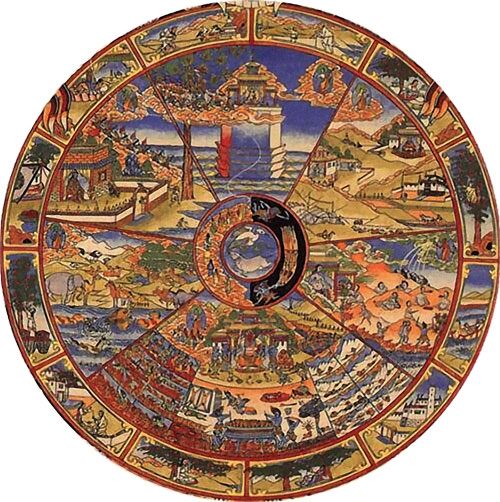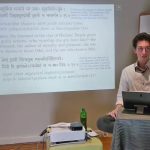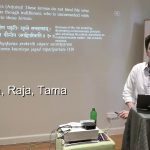What is samsara?

Samsara is limitation one experiences and caused by not knowing difference between REAL (Self; atman) and UNREAL (Not-Self; anatman).
A samsari seeks freedom in the world through acquisition (beauty, spiritual experiences, knowledge, wealth, fame, success) – and enjoyment of those acquired objects.
Thus “acquire + enjoy the acquired” summarizes life of every individual born in past, present and future, whose under spell of ignorance; believing “I” is body-mind.
Nothing is wrong nor right about samsara. Only that it has an inherent limitation of endless pain/pleasure cycle.
EG: Pleasure upon making love, pain upon tension. Please upon hired, pain upon fired. Pleasure upon feeling energetic/clear, discomfort upon feeling tired/dull. Pleasure upon security, pain upon uncertainty. This is life of samsara. One can't neither lose nor win.
Spiritual world is not exempt from samsara, it's just a more sophisticated/subtle version of it.
Notice the symbolic image above. It's round. Meaning there's no beginning/ending point of samsara. Also each segment of the wheel has a different life/situation.
Thus samsara is beginingless combinations of life/situation experiences.
Samsara ENDS when one dis-identfies self from ahamkara (doer/enjoyer) and re-identifies self with atman.
NOTE: These are technical words and only meant to be handled by the Vedanta expounder. They are not to be spoken outside guru-śiṣya-paraṃpara. No differently then a science teacher doesn't use technical words outside class. Thus these words only become meaningful inside a mutually cooperative environment between teacher-student.
How to end samsara? This is done gradually and systematically within Vedanta classes by the Vedanta acharya.
Also see: That I attempt to be different, Is samsara.






Samsara, the wheel of suffering, is simply ignorance of the nondual nature of reality. You are in nirvana now and always. Nirvana is the realization of the Self.
„Now and then we know a moment of supreme bliss, when we ask nothing, give nothing, know nothing but bliss. Then it passes, and we again see the panorama of the universe moving before us; and we know that it is but a mosaic work set upon God, who is the background of all things. Vedanta teaches that nirvana can be attained here and now, that we do not have to wait for death to reach it. Nirvana is the realization of the Self, and after having once known that, if only for an instant, never again can one be deluded by the mirage of personality. Having eyes, we must see the apparent, but all the time we know what it is; we have found out its true nature. It is the screen that hides the Self, which is unchanging. The screen opens and we find the Self behind it. All change is the screen. In the saint the screen is thin, and the reality can almost shine through. In the sinner the screen is thick, and we are able to lose sight of the truth that the atman [Self] is there, as well as behind the saint’s screen. When the screen is wholly removed, we find it never existed—that we were the atman and nothing else, even the screen is forgotten.
The two phases of this distinction in life are: First, that the man, who knows the real Self, will not be affected by anything; secondly, that that man alone can do good to the world. That man alone will have seen the real motive of doing good to others, because there is only one. It cannot be called egoistic, because that would be differentiation. It is only selflessness. It is the perception of the universal, not of the individual. Every case of love and sympathy is an assertion of this universal. “Not I, but thou.” Help another, because you are in him and he is in you, is the philosophical way of putting it. The real Vedantist alone will give up his life for a fellow being without any compunction, because he knows he will not die. As long as there is one insect left in the world, he is living; as long as one mouth eats, he eats. So he goes on doing good to others, and is never hindered by the modern ideas of caring for the body. When a man reaches this point of abnegation, he goes beyond the moral struggle, beyond everything. He sees in the most learned priest, in the cow, in the dog, in the most miserable places, neither the learned man, nor the cow, nor the dog, nor the miserable place, but the same divinity manifesting itself in them all. He alone is the happy man; and the man who has acquired that sameness has, even in this life, conquered all existence. God is pure; therefore such a man is said to be living in God.“
– Swami Vivekananda
https://www.youtube.com/watch?v=30bn9TxJ62k